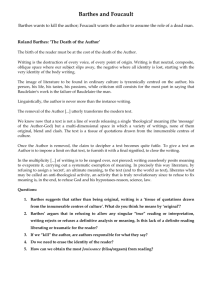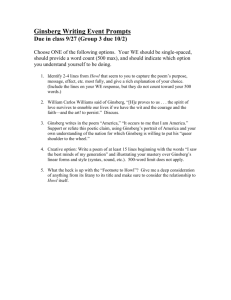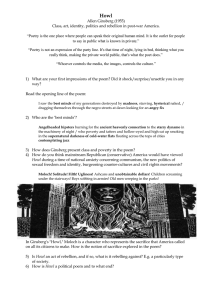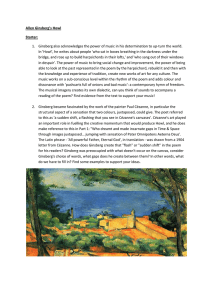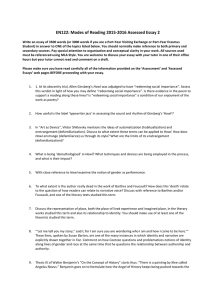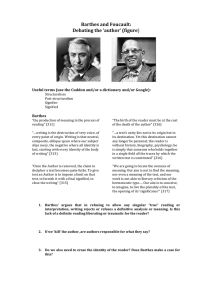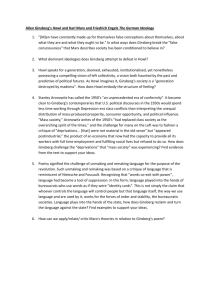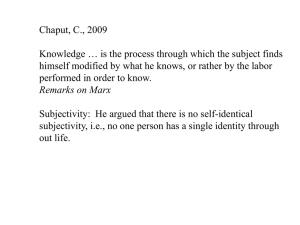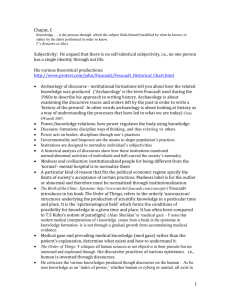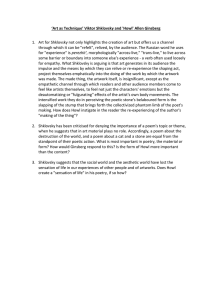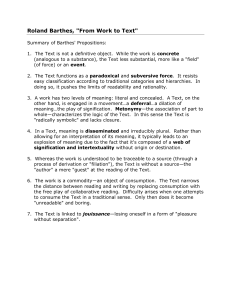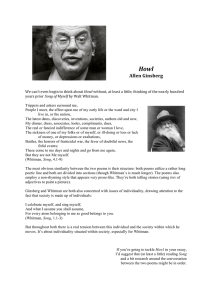Handout Week 10 (29.11.12)
advertisement
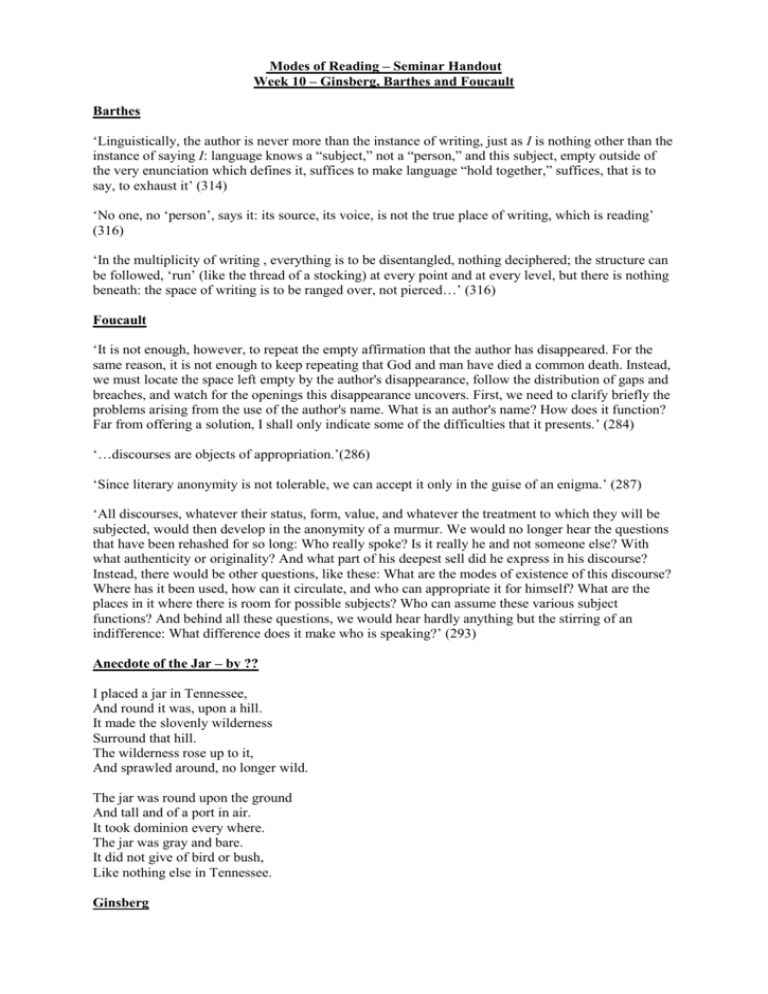
Modes of Reading – Seminar Handout Week 10 – Ginsberg, Barthes and Foucault Barthes ‘Linguistically, the author is never more than the instance of writing, just as I is nothing other than the instance of saying I: language knows a “subject,” not a “person,” and this subject, empty outside of the very enunciation which defines it, suffices to make language “hold together,” suffices, that is to say, to exhaust it’ (314) ‘No one, no ‘person’, says it: its source, its voice, is not the true place of writing, which is reading’ (316) ‘In the multiplicity of writing , everything is to be disentangled, nothing deciphered; the structure can be followed, ‘run’ (like the thread of a stocking) at every point and at every level, but there is nothing beneath: the space of writing is to be ranged over, not pierced…’ (316) Foucault ‘It is not enough, however, to repeat the empty affirmation that the author has disappeared. For the same reason, it is not enough to keep repeating that God and man have died a common death. Instead, we must locate the space left empty by the author's disappearance, follow the distribution of gaps and breaches, and watch for the openings this disappearance uncovers. First, we need to clarify briefly the problems arising from the use of the author's name. What is an author's name? How does it function? Far from offering a solution, I shall only indicate some of the difficulties that it presents.’ (284) ‘…discourses are objects of appropriation.’(286) ‘Since literary anonymity is not tolerable, we can accept it only in the guise of an enigma.’ (287) ‘All discourses, whatever their status, form, value, and whatever the treatment to which they will be subjected, would then develop in the anonymity of a murmur. We would no longer hear the questions that have been rehashed for so long: Who really spoke? Is it really he and not someone else? With what authenticity or originality? And what part of his deepest sell did he express in his discourse? Instead, there would be other questions, like these: What are the modes of existence of this discourse? Where has it been used, how can it circulate, and who can appropriate it for himself? What are the places in it where there is room for possible subjects? Who can assume these various subject functions? And behind all these questions, we would hear hardly anything but the stirring of an indifference: What difference does it make who is speaking?’ (293) Anecdote of the Jar – by ?? I placed a jar in Tennessee, And round it was, upon a hill. It made the slovenly wilderness Surround that hill. The wilderness rose up to it, And sprawled around, no longer wild. The jar was round upon the ground And tall and of a port in air. It took dominion every where. The jar was gray and bare. It did not give of bird or bush, Like nothing else in Tennessee. Ginsberg Peyote solidities of halls, backyard green tree cemetery dawns, wine drunkenness over the rooftops, storefront boroughs of teahead joyride neon Blinking traffic light, sun and moon and tree vibrations in the roaring winter dusks of Brooklyn, ashcan rantings and kind king light of mind Who chained themselves to subways for the endless ride from Battery to holy Bronx on benzedrine until the noise of wheels and children brought them down shuddering mouth-wracked and battered bleak of brain all drained of brilliance in the drear light of Zoo Who sank all night in submarine light of Bickford's floated out and sat through the stale beer afternoon in desolate Fugazzi's, listening to the crack of doom on the hydrogen jukebox Who talked continuously seventy hours from park to pad to bar to Bellevue to museum to the Brooklyn Bridge a lost battalion of platonic conversationalists jumping down the stoops off fire escapes off windowsills of Empire State out of the moon Yacketayakking screaming vomiting whispering facts and memories and anecdotes and eyeball kicks and shocks of hospitals and jails and wars Whole intellects disgorged in total recall for seven days and nights with brilliant eyes, meat for the Synagogue cast on the pavement Who vanished into nowhere Zen New Jersey leaving a trail of ambiguous picture postcards of Atlantic City Hall (‘Howl’, pp.10-11, City Lights, 2006) Questions (1) Michel Foucault claims that “if a text should be discovered in a state of anonymity – whether as a consequence of an accident or the author’s explicit wish – the game becomes one of rediscovering the author.” How can this statement be applied to Howl? (2) Foucault also suggests that the author “does not refer purely and simply to a real individual, since it can give rise simultaneously to several selves, to several subjects – positions that can be occupied by different classes of individuals.” Is this similar to Ginsberg’s poem? To which selves can we talk about in the case of Howl? (3) Foucault also mentions that “the text always contains a certain number of signs referring to the author,” which are “personal pronouns, adverbs of time and place, and verb conjugation. Such elements do not play the same role in discourses provided with the author-function as in those lacking it.” Consider the role of such signs in Howl and their effect on the reader. (4) Roland Barthes states that in a text, the title “always has a double function; enunciating and deictic.”Discuss the role of the title in Ginsberg’s poem and how the reader perceives it. (5) Barthes argues that ““the reader is the space on which all the quotations that make up a writing are inscribed without any of them being lost; a text’s unity lies not in its origin but in its destination...” In light of this view, do you think that the text has a different impact according to the context in which readers interpret the poem?
